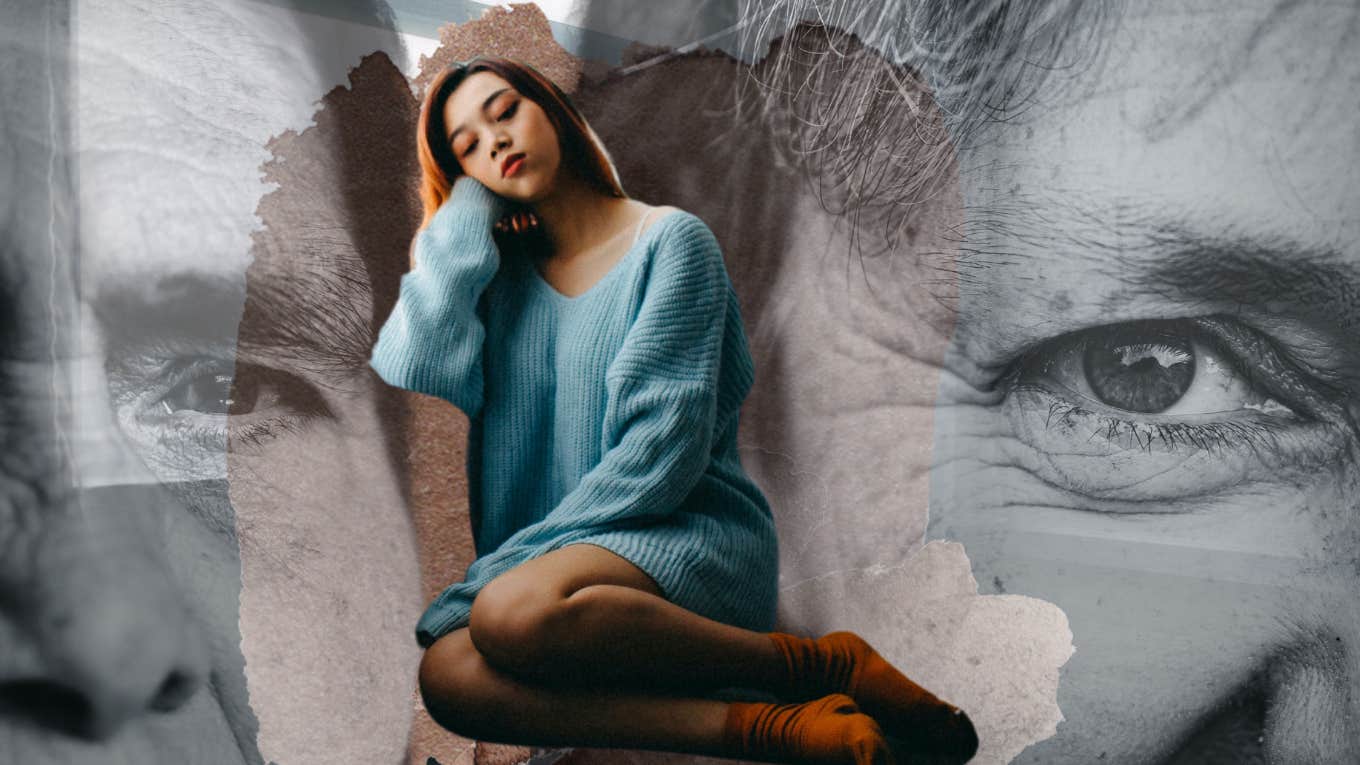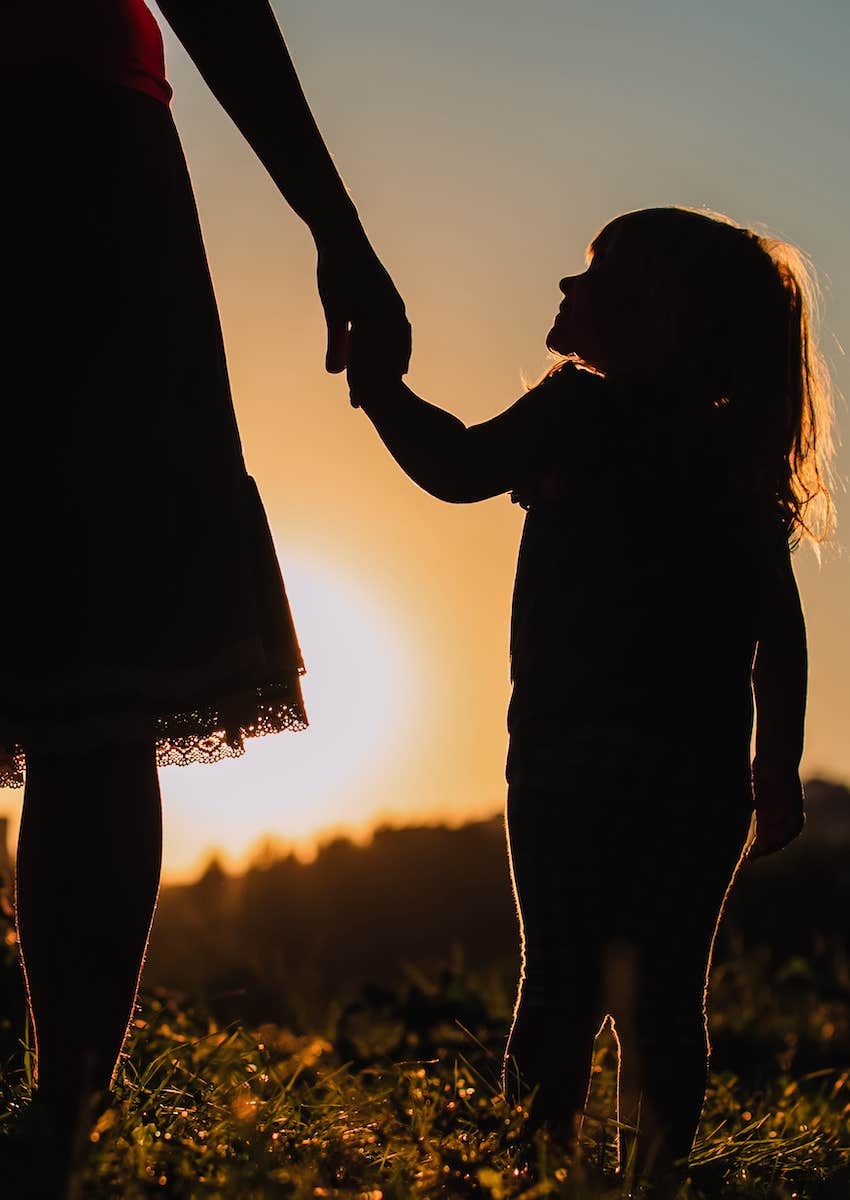9 Things Every Unloved Daughter Needs To Hear As An Adult
You are so worth the effort and can break this cycle.
 Katelyn Greer, Alpay Tonga, Anthony Tran | Unsplash
Katelyn Greer, Alpay Tonga, Anthony Tran | Unsplash Are you an unloved daughter? If so, I want to validate that the feeling of being unloved may come from childhood emotional neglect.
You may never hear it from your Mom, but listen to it now from other unloved daughters:
You have the power to break the cycle. You can heal, thrive, and prevent the self-sabotaging and numbing behaviors plaguing your life.
First, I'll start with a list of what I've noticed every woman who grew up feeling unloved need to hear. Then I'll share my mother's story and how we've chosen to break a family legacy of unloved daughters.
Here are things every unloved daughter needs to hear.
1. It's not your fault.
You are not responsible for your mother's actions or emotions. Her shortcomings are not a reflection of your worth.
2. You are safe.
It is okay to be a child. And it's okay to play. Allow yourself to sing, dance, paint, make noise, etc.!
3. Be proud of yourself.
Feel free to use your gifts or to be different. Different is spectacular!
4. Your potential is limitless.
Release the limiting belief that you absorbed as a child.
5. Step out and let your light shine.
Building walls around yourself will not keep you safe; they will keep you isolated.
6. You deserve love and respect.
Everyone deserves to be treated with love, kindness, and respect. Don't settle for less in any of your relationships.
7. Your feelings are valid.
It's important to acknowledge and express your feelings. Don't minimize or invalidate your emotions.
8. You are enough.
You always have been. Period.
9. You are so much more than an unloved daughter.
Remind yourself and believe it!
"My mother hated me."
This statement took my breath away. It was not a client sitting across from me but my mother. And the implications were about my grandmother's character, whom I held in a particular regard. While I knew my grandmother was somewhat superficial in showing love, I always wrote it off to her having 6 children and 9 grandchildren.
My other "Memaw" was the genuinely loving, bear-hugging, cookie-baking, story-reading, doting grandparent with a more intimate family of 2 children and 4 grandchildren, so I accepted the two Grands were simply different.
My grandmother's legacy
In her later years, my Mom began sharing stories of my maternal grandmother being hypercritical, emotionally unavailable, jealous, and abusive. I saw the pain on my Mom's face, even then, at the age of 85. I began recollecting the effort my Mom put into showing love to my grandmother, always with acts of service and getting little or nothing in return.
I remember my Mom's frustration, though she kept giving. It became clear my Mom was forever trying to win the approval and validation of her mother. And it hit me… I am the daughter of an unloved daughter.
I tumbled under the force of the wave of sadness that washed over me, losing my footing and sense of direction until it slowed and allowed me to seek the surface. I was shocked and did not know what to say. What did she need me to say?
What my mother needed to hear
What did my Mom, who has passed away since this conversation, and what do all unloved daughters need to hear as adults? Indeed, they need to hear they are lovable, worthy, and valuable. That it wasn't their fault that their mother treated them this way. I'm not sure it can be boiled down to one thing, and since I can no longer ask my Mom, I asked my clients.
Many are self-professed boundary-less people pleasers, clingers, or avoiders and experience incredible emotional highs and lows.
They can be hyper-sensitive and easily triggered into self-sabotage, undermining themselves with the internalized voice of their respective moms. They have come for help with relationship struggles -- with intimate partners, co-workers, friends, and their children.

Photo: Nadya Eugene via Shutterstock
The most important thing unloved daughters need
Perhaps the most crucial thing unloved daughters need to hear as adults is that they are more than the unloved daughters. When I think of my Mom, I want to say this to her. I want her to know that I see her and that despite her childhood circumstances, she became a loving and lovable mother to my brother and me. I want her to hear she was a talented musician and piano teacher. That she was intelligent, capable, and deserving of love and happiness. That she was and is loved. She was so much more than an unloved daughter!
I realize my Mom moved through her pain but never healed. She was a high achiever, graduating high school at 16. Marrying my Dad at 19, she struggled to have children. My brother and I came in her early 30s, considered late then. I just assumed she didn't have a group of female friends because of the age difference between the moms and their children.
She started college while I was in Kindergarten and finished while I was at University, and in between, she created a life of excellence whether it was in ongoing education for herself, teaching her students, venturing into business as a realtor, and a Mary Kay Cosmetics representative, or pushing through fears and learning to swim in her 60s so that she could engage with her grandkids in a way she never could with my brother or myself. She also became more socially involved upon empty nesting.
However, her struggle to trust other women projected onto me, and I allowed her fear to keep me emotionally distant from friends, expecting to be hurt if I got too close. I let my guard down while away at school, and, boy oh boy, did I ever get hurt; I also got an "I told you so" from Mom.
Make a positive list
You are more than an unloved daughter, too. But believing this can be difficult. Here's a little something to make that shift happen. Make a list of all the positive things that you are. Make a list of all the things you are not. Make a list of all that you need help embracing. I will be sure to remind myself that I am more than the daughter of an unloved daughter and that her fears are not mine, but her strength is.
Give yourself grace as you choose to heal. You are not alone. Reach out to others who understand and share your journey.
Talking about your experiences can be healing, and support networks are crucial. It isn't easy, but it's worth it, and so are you.
Ann Papayoti, PCC, is a relationship coach, author, and speaker helping people help themselves through losses and transitions. She helps people untangle from their past and heal their hearts.

